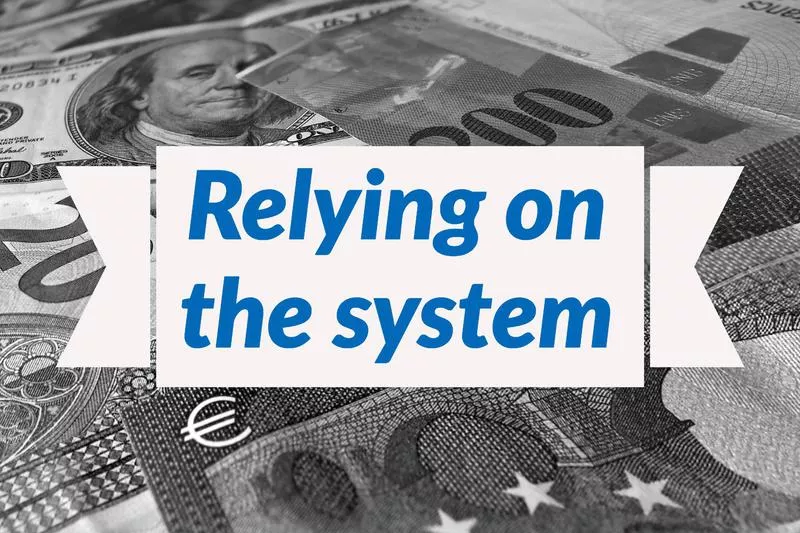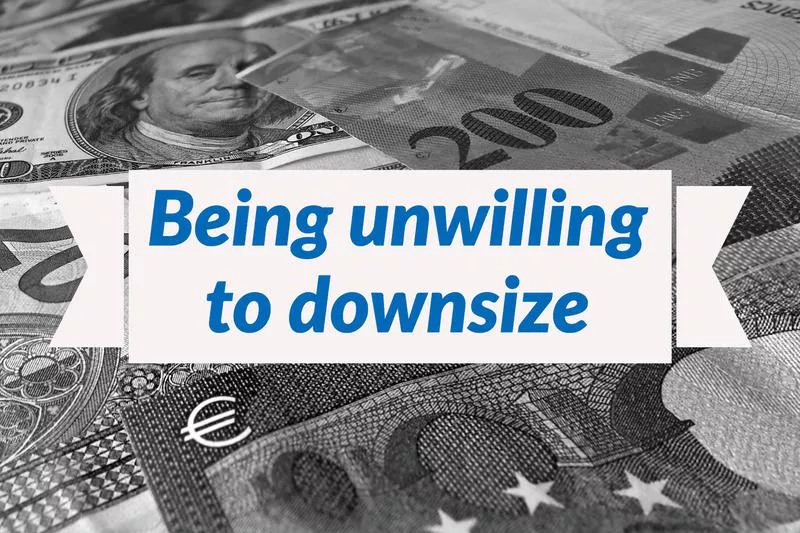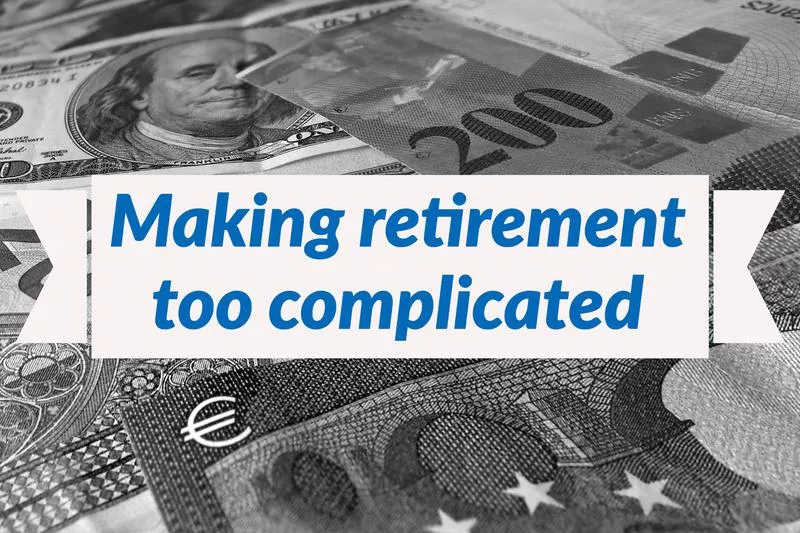Whether you’ll miss your job like crazy or are counting the remaining days on your calendar until you sprint out of the office screaming, retirement is an exciting time. It’s your time to do what you want without a boss telling you what you need to do.
But retirement is also scary because we all know that one person who was happily retired only to have to head back to work after making a big financial mistake. Financial and retirement experts say these 16 common and avoidable money mistakes in retirement can ruin your golden years.
Mistake No. 1: Relying Too Heavily on Rules

There are guidelines in retirement, but according to financial planner Brandon Renfro, these should not be golden rules. Renfro recommends retirees look at these guidelines and adapt them to fit their specific needs and goals.
One such “golden rule” Renfro views as more of a guideline than a hard-set requirement is the famed 4 percent rule. This rule basically says you should withdraw 4 percent of your total retirement account balance per year. Given the average rates of return, this will mean your withdrawals will be made up of only interest and dividends, allowing the principal to remain.
While this is a great starting point, Renfro notes, “The rule is based on a 30-year retirement period. If you anticipate much shorter, say 20-year, retirement period then you can take a larger withdrawal.” He also notes some retirees prefer to front-load their retirement with travel and other fun activities, so they may withdraw a bit more early on and scale it back in their later years.
Mistake No. 2: Relying on the System

One of the huge money mistakes Stacy Caprio of Fiscal Nerd sees all too often is retirees thinking they can cruise through retirement on Social Security alone. According to Caprio, “This is not true and most would have to severely downgrade their lifestyle if they are counting on this.”
She sheds more negative light on the subject in saying, “Social Security is not a guaranteed benefit with the amount of debt our country is currently in and could be in in the future.”
Gregory J. Kurinec, a certified financial planner at Bentron Financial Group, Inc., also sees some issues with Social Security. While he is not as gloomy on SSI as Caprio, he notes, “not factoring in how big of a role Social Security will play in retirement” as one of the key money mistakes retirees make.
“I see retirees take a laissez-faire attitude when it comes to their Social Security claiming strategy,” Kuinec said, “The claiming decision you make today will not only affect the income you receive today and for the rest of your life, but also could potentially affect the income of your spouse as well.” This is why you must look at your situation now and your future plans before starting your Social Security payout.
Mistake No. 3: Keeping Up With the Joneses

Keeping up with the Joneses is nothing new. Your neighbor installs a pool, so you put one in and add a hot tub. The guy two houses down bought a new BMW, so you grabbed the latest Mercedes-Benz. The vicious cycle continues throughout your working years and is generally not a huge deal as long as you have money coming in.
In retirement, though, Fred Saide, managing director at MoneyMattersUSA, Advisory LLC, says this can ruin your retirement in a hurry. If you are a habitual offender of keeping up with the Joneses or lifestyle creep — when you steadily match your lifestyle to your salary — Saide suggests a phased retirement or keeping a part-time job to make ends meet in retirement.
Mistake No. 4: Lacking a Spending Plan

Look, it’s OK to spend your money in retirement, You worked hard your whole life and built that egg, now it’s time to crack it and enjoy the spoils. Whether it’s traveling, taking a deeper interest in your hobbies or anything else under the sun, do it and enjoy it. But the key is to make sure you plan accordingly.
Brian Colvert, a registered investment advisor at Bonfire Financial all too often sees people not planning for their spending. Colvert says, “If you plan to travel more at the beginning of retirement that extra spending is going to affect the plan in later years to a larger degree. Follow your financial plan and run scenarios with your advisor to see future projections.”
This will ensure you can enjoy yourself in your younger retired years and still have savings left to get through the later years.
Mistake No. 5: Lacking Long-Term Care Plans

According to Mike Raines, a 30-year veteran in the life insurance industry, you have a 50 percent chance of needing some type of long-term care if you hit the age of 65. Raines says, “probably my number one money mistake that most retirees make is not planning for long-term care expenses.”
Retirees often think Medicare will pay for long-term care expenses such as assisted living center, nursing home, etc., but Raines stresses it “pays a very limited amount toward this expense.” And with expenses that run up to $5,000, $6,000, $7,000 or even more per month, according to Raines, this could put a huge dent in your retirement account.
Mistake No. 6: Turning Your Home Into Fast Cash

Jacob Dayan, CEO and co-founder of Community Tax and Finance Pal, warns against the temptation to turn your house into quick cash during retirement by taking out a home equity loan. While it may seem like a great idea to turn your paid-off home into cash for daily living expenses, Dayan says, “Retirees should think very carefully before going this route as they will need to take on debt obligations on a fixed income, which for many is likely not the wisest choice.”
There are alternatives Dayan sees as viable, including downsizing your home, moving to a more economical city, state or country, or moving into a retirement-focused community. These can all help save money and stretch those retirement dollars without taking on a monthly payment while on a fixed budget.
Mistake No. 7: Being Unwilling to Downsize

We previously spoke of how downsizing can help bring in extra cash and relieve some expenses in retirement, but there are retirees who refuse to downsize. According to Sean Messier, credit industry analyst at Credit Card Insider, this can be a big issue in retirement.
“It’s easy to get attached to a home, but maintaining a house can consume a great deal of your valuable financial resources,” Messier said, “Downsizing could help you free up additional cash to funnel toward other expenses, which may make it a wise move, even if that home is fairly valuable.”
For example, if you live in the five-bedroom home you raised your family in, you could be throwing away thousands of dollars per year in property taxes and maintenance. Instead, why not sell the house and use some of the cash to buy a modern two-bedroom home and save the rest of the cash for unexpected expenses?
Mistake No. 8: Making Retirement Too Complicated

Once you retire, the last thing you want to do is make it so complicated it becomes another job. According to Byron Ellis, certified financial planner with United Capital Financial Life Management and Founder of Doing Money Right, it’s best to simplify things a bit.
Do you have multiple retirement accounts to help keep your money diversified? Great! That is one huge step in being financially sound in retirement. But the complexities arise when deciding where to pull your retirement income from first. Ellis suggests not overthinking it. The first thing is to see which ones you are beyond the penalty phase in and pull from those first. According to Ellis, “You are allowed to withdraw 401(k) dollars penalty-free at age 55, and your IRA money is available without penalty at age 59 ½,” so use that as your kicking off point.
If you are already past the penalty phase in all your retirement accounts, simply look at your investment percentages and pull your income at the same percentages. For example, if you have 60 percent of your retirement savings in a 401(k) and 40 percent in an IRA, pull 60 percent of your income from the 401(k) and 40 percent from the IRA.
Mistake No. 9: Making It Way Too Simple

Though he mentioned a complicated retirement as one of his key money mistakes, Byron Ellis also says oversimplifying it can be just as bad.
According to Ellis, “the allure of guaranteed income entices many retirees to cash in all of their investments and convert the balance to a monthly income stream, via financial products called annuities.” To Ellis, this is “putting all your eggs in one basket,” which can lead to major financial issues down the road.
While an annuity can be a great contributor to stability in retirement as it can provide a steady stream of income that rarely changes, it can also cost you money because the annuity company is raking in interest on your initial investment and paying you only a fraction of its earnings. Ellis also notes it is more difficult to withdraw your principal from an annuity, making it hard to cover unexpected large expenses.
Take out an annuity for some stability but spread your savings out in other investments, too.
Mistake No. 10: Underestimating Your Staying Power

Sandy Yong, personal finance author of the book, “The Money Master” warns of underestimating how long you may live. According to Yong, “as people live longer, there will be an increase of people living into their 90s and 100s. You will need to ensure that you have enough money saved during retirement.” Yong recommends delaying retirement If you don’t have enough money saved to survive that long.
Regardless of how long others in your family have lived, always planning to live the longest is best. Worst case, you leave a chunk of cash to your next of kin if you die before using up all your retirement funds.
Mistake No. 11: Moving to Greener Pastures

Earlier, we spoke of moving to a less expensive area or downsizing your home as a viable alternative to taking out a home equity loan. But Don Orban, president and CEO of Midwest Retirement Advisors in Omaha, Nebraska, warns there are downsides to this, too.
Specifically, Orban warns retirees about the costs involved in moving along with the potential regret and the cost of stuffing the toothpaste back in the tube by returning to your original location. Orban suggests calculating all the costs and savings of moving and comparing them to staying where you are and seeing which is the better financial move.
Happiness is also a factor, so you may want to pay your desired area a long-term visit to see how you like it. Live like a local so you can get a good feel for the area before making the leap. Without ensuring this is the right place for you, Orban warns you could end up paying for multiple unnecessary moves.
Mistake No. 12: Overplaying the Stock Market

The stock market is all fun and games until someone loses their life’s savings. This is one of the risks of overplaying the stock market in retirement.
According to R.J. Weiss, founder of The Ways To Wealth, “the biggest money mistake one can make in retirement is overreacting to market fluctuations.” Making predictions on where the stock market will head when saving for retirement is fine because you generally have time to make up for any mishaps. But as Weiss points out, this “is not a game one can afford to play with their retirement dollars.”
Instead, Weiss recommends revisiting your overall asset allocation and portfolio strategy if you worry about daily fluctuations impacting your withdrawals in retirement. This could indicate a lack of diversity.
Mistake No. 13: Helping Others Too Much

As parents and grandparents, you have likely become used to helping your children and grandchildren financially. And in some cases, this financial aid is never repaid. When you are working full-time, you can replace that lost money and continue on your way. But Lou Cannataro, partner at Cannataro Park Avenue Financial, says this can be a big financial pitfall for retirees. When living on a fixed income, handing cash over to your family to help them get on their feet is robbing you of precious funds to get you through the rest of your life.
Cannataro says you should “realign your gifting and ‘helping’ family members during retirement. You may not be able to be as generous with your assets during retirement but the one thing you could provide, which is even more valuable, is your time to family members.” You can also sit down with your family and set expectations with them.
Mistake No. 14: Assuming the Average

According to Dan Keady, chief financial planning strategist at TIAA, a major mistake retirees make is assuming their investment returns will be at the average every year.
“What people don’t often understand is that a market downturn around the time of retirement is a serious risk that can great affect your quality of life,” Keady said. “It can even mean you run out of money far earlier than you planned. This is known as ‘sequence of return risk.’”
What you need to account for, according to Keady, is retirement timing. If you enter retirement during a market upswing, you can boost your retirement portfolio for the long haul. If the market is down, a fixed-withdrawal retirement plan may come up short.
Mistake No. 15: Retiring From Budgeting, Too

Retirement is a time for relaxation and, dare I say, being as lazy as you want to be. You’ve earned it. But Kevin Gallegos, senior vice president of client enrollment for Freedom Debt Relief, warns of getting lazy with — or flat out ignoring — the budgeting that got you to this point.
“Budgeting may not sound exciting, but even in retirement, it is the No. 1, sure-fire way to spend smartly and make sure you have the money to do what you need to do and want to do. It need not be complicated,” Gallegos said “An Excel spreadsheet, or pencil and paper, will work as well as budget-specific software.” He suggests starting with goals instead of numbers. “Whether the goals include a European vacation, dance lessons or training for a long-distance bike ride, write down the goals and build your budget with the goals in mind,” said Gallegos.
Mistake No. 16: Forgetting Why You Saved So Intensely

We saved the best for last. One huge money mistake retirees make, according to James Lenhoff, CEO of Wealthquest, is they forget why they saved. Lenhoff states these retirees spent so much time and energy saving the money they need to live comfortably in retirement they become afraid to spend it.
“This is the first time they are living on their own — no paychecks coming in each week — so they get scared,” Lenhoff said, “They want to save everything they have but then they miss out on everything they planned and worked so hard for.”
The key to retirement is making the most of your later years, and that includes spending some of that cash you worked so hard saving. Yes, it can be hard to watch that retirement account go in reverse, but with budgeting, diverse investments and a plan in place, you can make the most of your golden years free of financial worries.